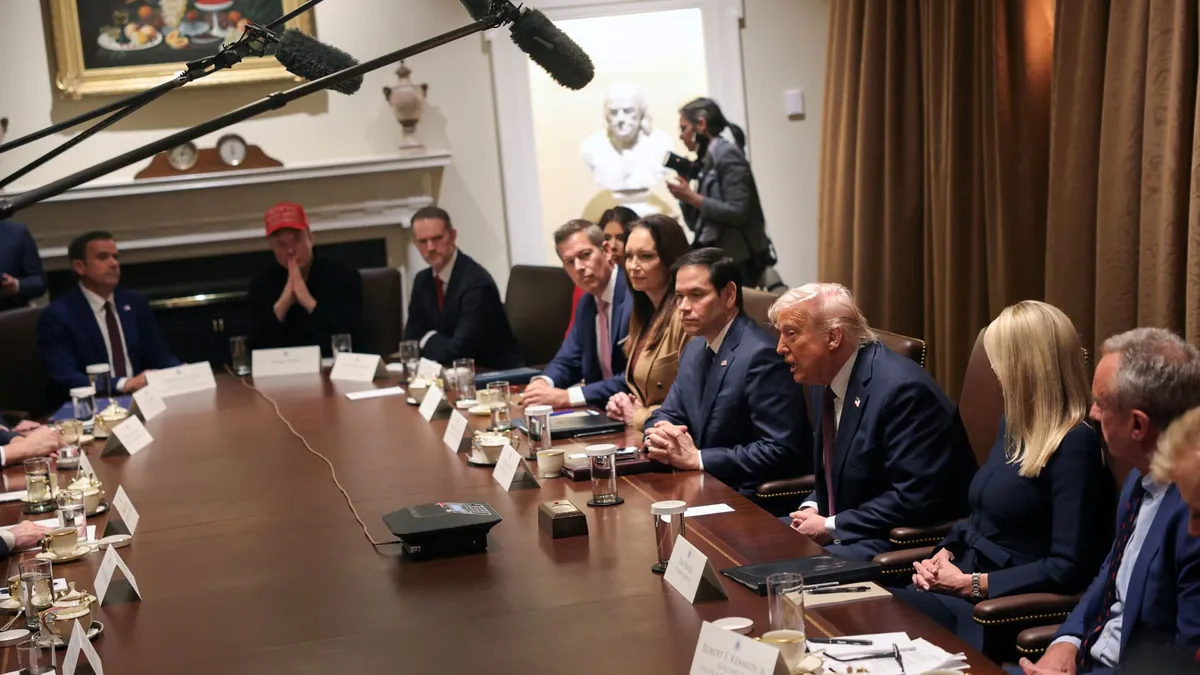
On Monday, President Donald Trump revealed his intentions to implement new tariffs targeting various industries, including automobiles and pharmaceuticals. This announcement comes as part of his broader strategy to impose reciprocal tariffs, aimed at protecting American businesses and addressing trade imbalances. "We'll be announcing cars very shortly," Trump stated during a Cabinet meeting, emphasizing the urgency of these upcoming tariffs.
Trump has previously announced tariffs on steel and aluminum, and he hinted that pharmaceutical tariffs could be revealed in the near future. "We have to have pharmaceuticals," he remarked, indicating the critical nature of this sector. The President assured that these announcements would not take long, suggesting they would occur within days rather than weeks.
During a subsequent White House event, Trump expanded his focus to include the lumber and semiconductor industries, stating that tariffs on these sectors will also be forthcoming. This expansion indicates a comprehensive approach to trade policy, as Trump seeks to address various areas of economic concern.
Despite the ambitious plans for new tariffs, Trump mentioned that he may provide relief to certain countries regarding the reciprocal tariffs set to take effect on April 2. When asked for clarification, he initially stated, "Yeah, it's going to be everything," but later adjusted his statement to indicate that not all tariffs would be implemented on that date. This suggests a more nuanced approach to the tariff rollout.
Trump advised that the announcement regarding auto tariffs could occur prior to the implementation of the reciprocal tariffs, stating, "We'll be announcing that fairly soon over the next few days." This indicates a strategic timing of tariff announcements to maximize impact and clarity for affected industries.
The Wall Street Journal reported that the White House might exclude specific industry tariffs from the April 2 implementation, despite earlier indications that all tariffs would commence simultaneously. This evolving narrative highlights the complexity and ongoing adjustments within Trump’s trade strategy.
Additionally, Trump has reiterated his commitment to imposing a 25% tariff on all countries purchasing oil and gas from Venezuela, expressing dissatisfaction with the current trade dynamics. "We've been ripped off by every country in the world," he declared, reaffirming his administration's stance on trade reform.
As Trump prepares to unveil these new tariffs, the business community and international partners are closely monitoring these developments. The ramifications of these tariffs could significantly impact various sectors, as well as the overall U.S. economy.